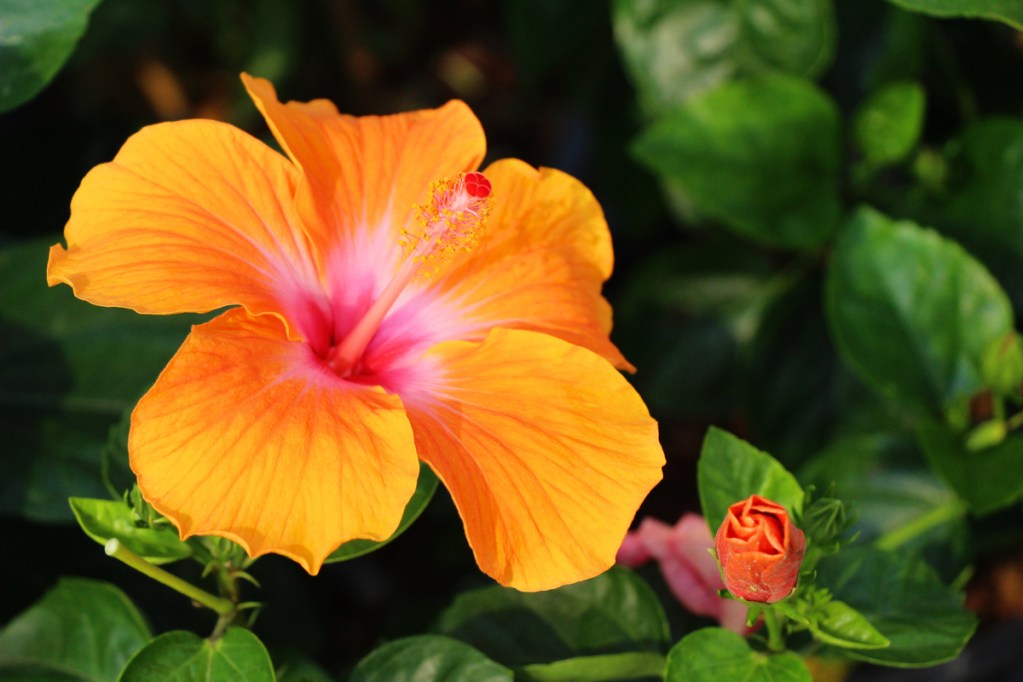
Garden pests range from minor annoyances to plant-destroying nightmares, but controlling them can be tricky. While commercial sprays are effective and easy to find, many of them include harsh chemicals that are not good for the environment. On top of that, some plants are too sensitive for sprays like that! Hibiscus plants in particular can suffer cosmetic damage from certain chemical sprays. If you need help keeping pests away from your hibiscus, here’s what you need to know about finding the right insecticide for hibiscus plants.
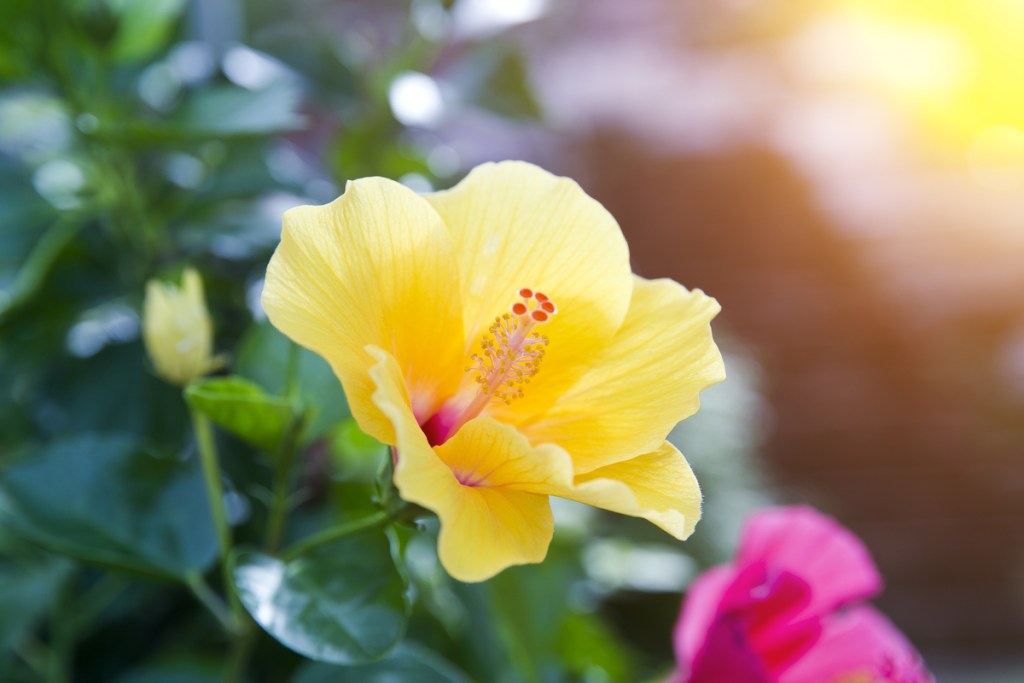
Why are specialized sprays so important?
Insecticide or pesticide sprays have a job to do. They’re made specifically to kill insects and keep them away from your plants. Most plants can withstand the chemicals used in these sprays without issue, but some plants, like hibiscus, are particularly sensitive.
Using a regular spray on a delicate plant could lead to damage. It may cause mild, cosmetic damage, but it can also lead to severe problems that damage the plant’s ability to thrive. This is more likely to happen if you use sprays on delicate plants repeatedly. You can avoid this by not planting sensitive plants or by forgoing the use of sprays in general, but the best course of action is to just buy sprays made for sensitive plants.
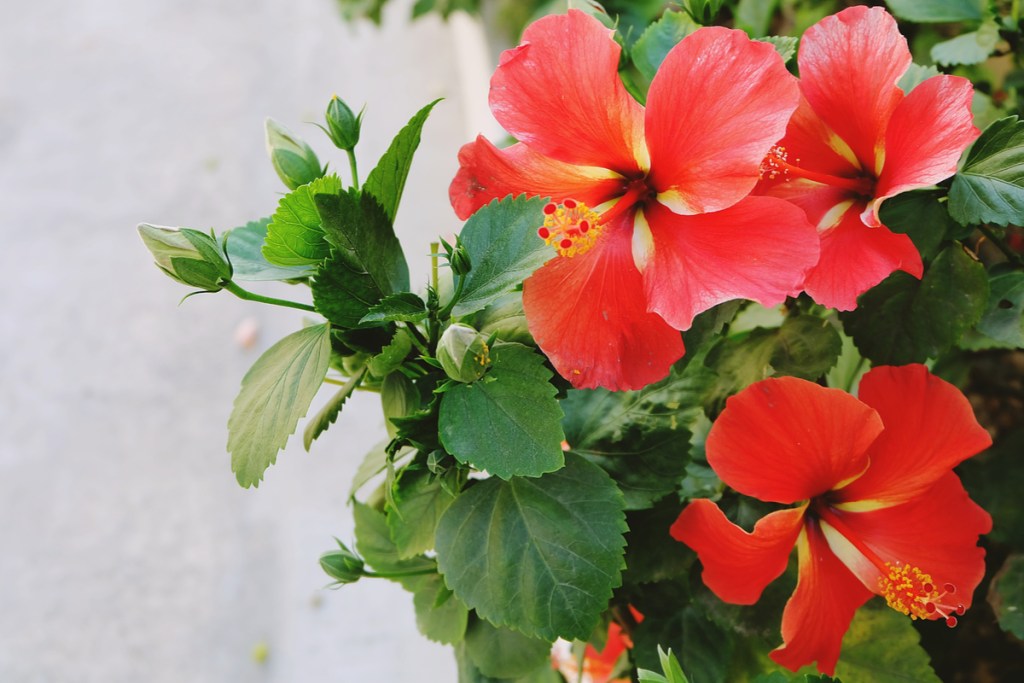
What should you look for when picking a spray?
Sprays for delicate plants will often say so on the label, but there are other words and phrases that can help clue you in, too. Look for bottles that say they’re organic or don’t use harsh chemicals. This is an indicator that this spray is likely suitable for more delicate plants. Look for certifications from organizations such as OMRI, which double-check that companies are being truthful about their ingredients. When in doubt, do a quick search into the company itself, looking for red flags such as negative reviews or recent scandals or recalls involving products.
The words plant-safe or garden-safe can sometimes be a good indicator, but it isn’t as reliable as other indicators. This is because, technically, any pesticide for use in a garden should be plant-safe. However, plants that are more sensitive may still react to these sprays. Look for these phrases in combination with other indicators.
When in doubt, check the ingredients. Neem oil and pyrethrin are both derived from plants and are safe to use on your delicate hibiscus plants, but they aren’t the only natural insecticides. There’s no shame in looking up specific ingredients if you don’t recognize them! It’s better to be safe with a search history full of chemical names than sorry with a garden full of chemical burns.
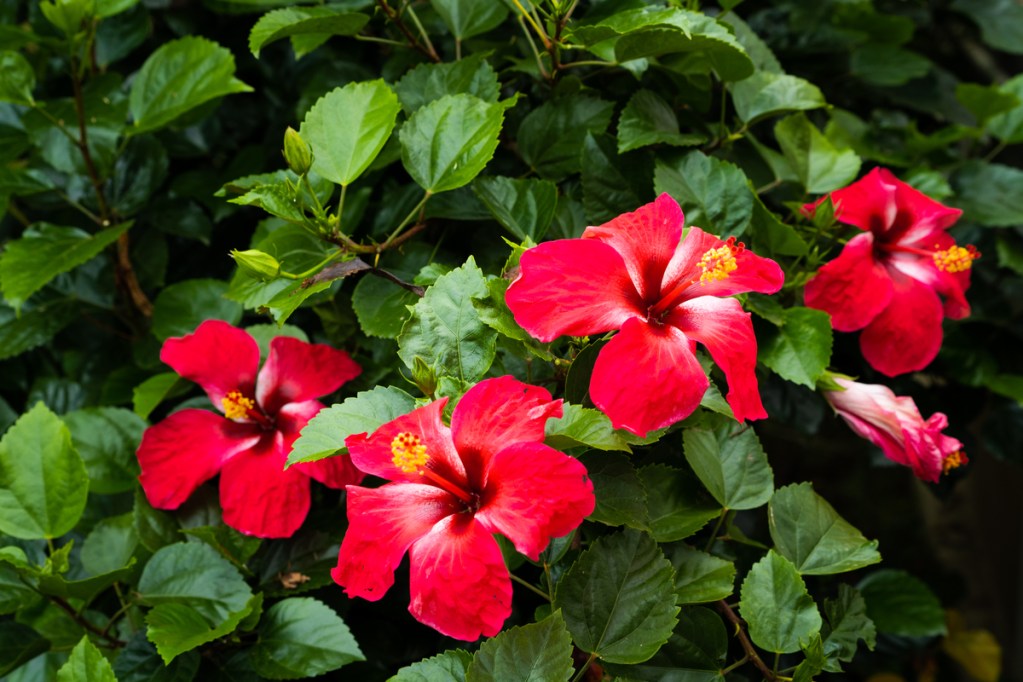
Earth’s Ally Insect Control
This spray checks all the boxes for delicate plants. It is plant-safe, people-safe, and pet-safe, and it doesn’t use harsh chemicals. It’s even been certified as bee-safe, so you can be confident you’re only getting rid of the insects you want and not the helpful pollinators you need.
The only potential downside is that there isn’t a list of what it contains. The label says it is entirely comprised of organic botanical oils but doesn’t list which ones. Since this product is certified, it shouldn’t be a problem, but this does make it a little inconvenient if you’re looking to research individual ingredients for their potential effects on your plants.
This spray is specifically for soft-bodied insects like mites, not hard-bodied insects like beetles. This, unfortunately, means that if you’re having difficulties with beetles, you’ll need to look elsewhere. On the plus side, reviewers often comment that this insecticide has a pleasant smell.
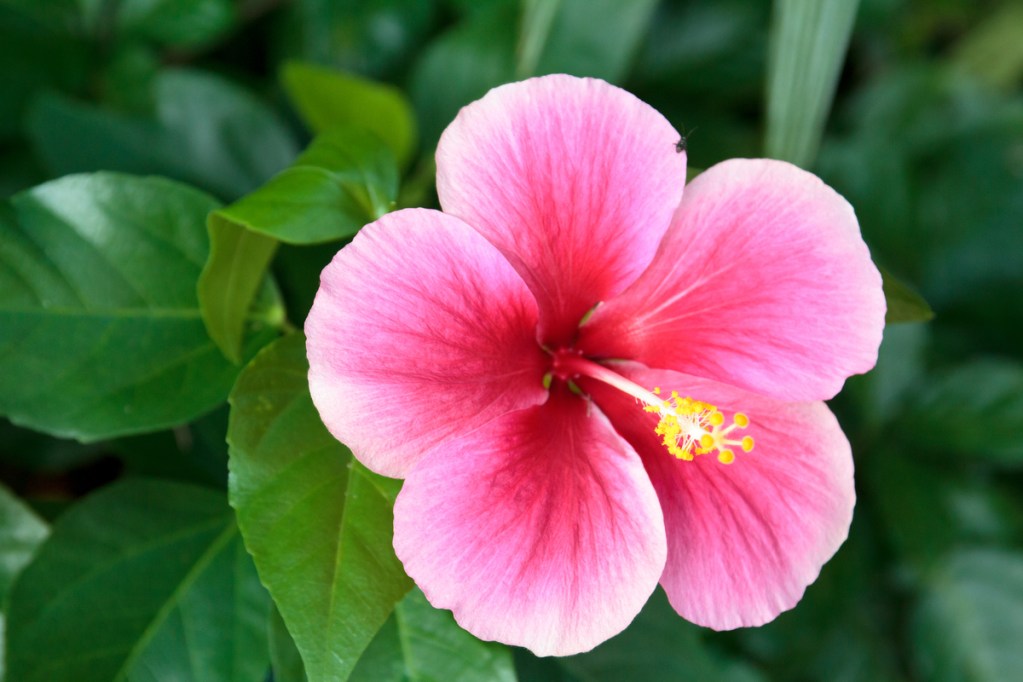
Garden Safe Insecticidal Soap
This spray is an insecticidal soap that lists the active ingredient as potassium salts of fatty acids. It’s safe for use on edibles, so you don’t need to worry about avoiding your vegetables or your hibiscus flowers if you plan to use them for tea — but it isn’t pet-safe.
If you’re unfamiliar with potassium salts of fatty acids and are maybe a little confused, don’t worry! They’re sometimes called soap salts, hence why insecticidal soaps, which commonly feature them, are called soaps. They’re made of potassium chloride and fatty acids. The fatty acids typically come from coconut or palm oil. Potassium salts of fatty acids have been used in pesticides since the 1940s, so there’s plenty of research available.
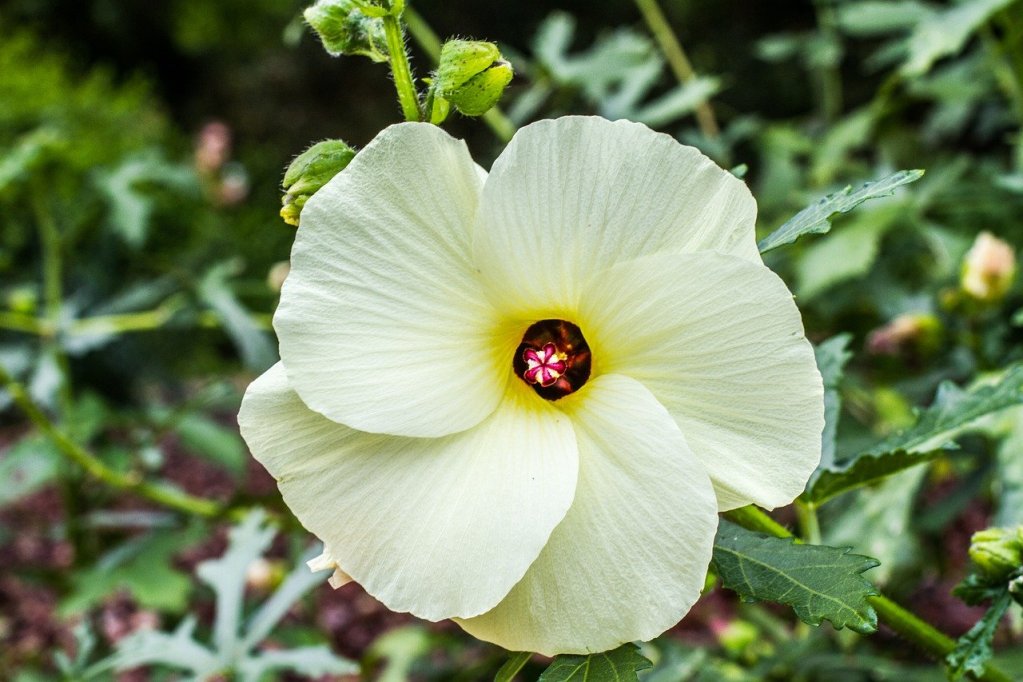
Homemade insecticides for hibiscus plants
Some gardeners prefer making their own insecticides at home over purchasing them, but are the most common homemade pest control solutions safe for delicate plants? Some of them are, while others are not.
Avoid homemade remedies that include vinegar. Although vinegar will help control pests, it will cause the leaves of your hibiscus to dry out. Dry leaves are more prone to cracking and tearing, which is both unhealthy and aesthetically unappealing. Avoid other acidic or caustic home remedies such as capsaicin and garlic spray as well.
Insecticidal soaps, which combine dish soap, water, and an oil of some kind, are safe and effective to use on hibiscus plants. Use a natural, organic soap for the best results, as some artificial soaps can cause minor drying as well. You can add neem oil to your mix for added protection.
It’s understandable to be concerned about your sensitive hibiscus plants. Pests can cause a lot of damage, but using the wrong pesticide can be just as damaging. To avoid that, look for sprays that are specifically for sensitive plants or that label themselves as being without harsh chemicals! If you need more information regarding pest control and management, read on further to learn about the efficacy of plant-based insecticides.
Editors' Recommendations
- What should you do if you find a snake in your garden?
- Hardening off your seedlings as you bring them outside is crucial – here’s how to do it
- The best (and worst) watermelon companion plants
- Gooseneck loosestrife might be the perfect plant for your pollinator garden – here’s what to know
- 18 incredible morning shade plants that will thrive in your shady garden



